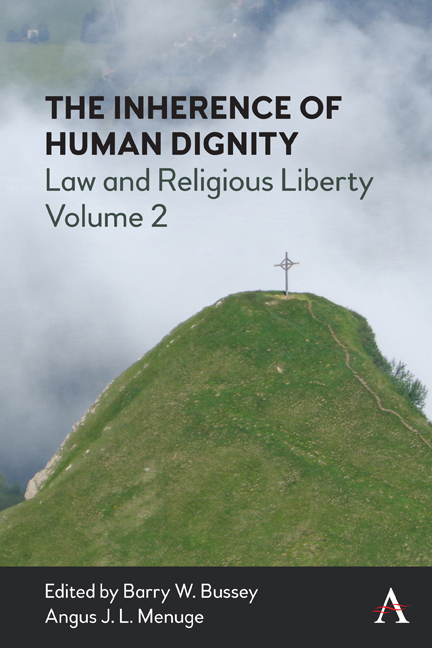Chapter Six - Against Group Dignity: Contemporary Human Rights Instruments and their Attributions of Dignity to Groups
Published online by Cambridge University Press: 24 February 2022
Summary
Introduction
The starting point of this chapter is that recent international human rights instruments have begun to use the terminology of dignity in a fundamentally different way than in the rights instruments that first used it to refer to the inherent worth of the human person. Specifically, recent human rights instruments have begun to refer to dignity that is attributed to groups or collective entities rather than simply to individual persons. It is important to try to understand why this change has occurred and, more significantly, what its consequences are. Understanding this shift in the context of international human rights instruments is important, because it is these instruments that have direct legal implications; at the same time, they effectively enshrine a philosophical concept, so the proper engagement with the concept within these instruments is philosophical but with attention to practical implications. Before considering consequences, though, it is necessary to set out in more detail the trajectory of the conceptual change by way of further background on the place of dignity within contemporary international human rights instruments.
The historic adoption of the Universal Declaration of Human Rights (UDHR) in 1948 included a normative recognition of the dignity of the human person. The Preamble emphasized the importance of recognizing ‘the inherent dignity and of the equal and inalienable rights of all members of the human family’ and of maintaining a faith in ‘the dignity and worth of the human person’, and Article 1 stated that ‘all human beings are born free and equal in dignity and rights’ (UDHR 1948). The preambles of the 1966 International Covenant on Civil and Political Rights (ICCPR) and International Covenant on Economic, Social, and Cultural Rights (ICESCR) reiterated that the ‘recognition of the inherent dignity and of the equal and inalienable rights of all members of the human family is the foundation of freedom, justice and peace in the world’ and that ‘these rights derive from the inherent dignity of the human person’ (ICCPR 1966; ICESCR 1966).
These instruments’ use of a terminology of dignity was deeply grounded but involved some important innovative application in a human rights context.
- Type
- Chapter
- Information
- The Inherence of Human DignityLaw and Religious Liberty, Volume 2, pp. 93 - 104Publisher: Anthem PressPrint publication year: 2021

